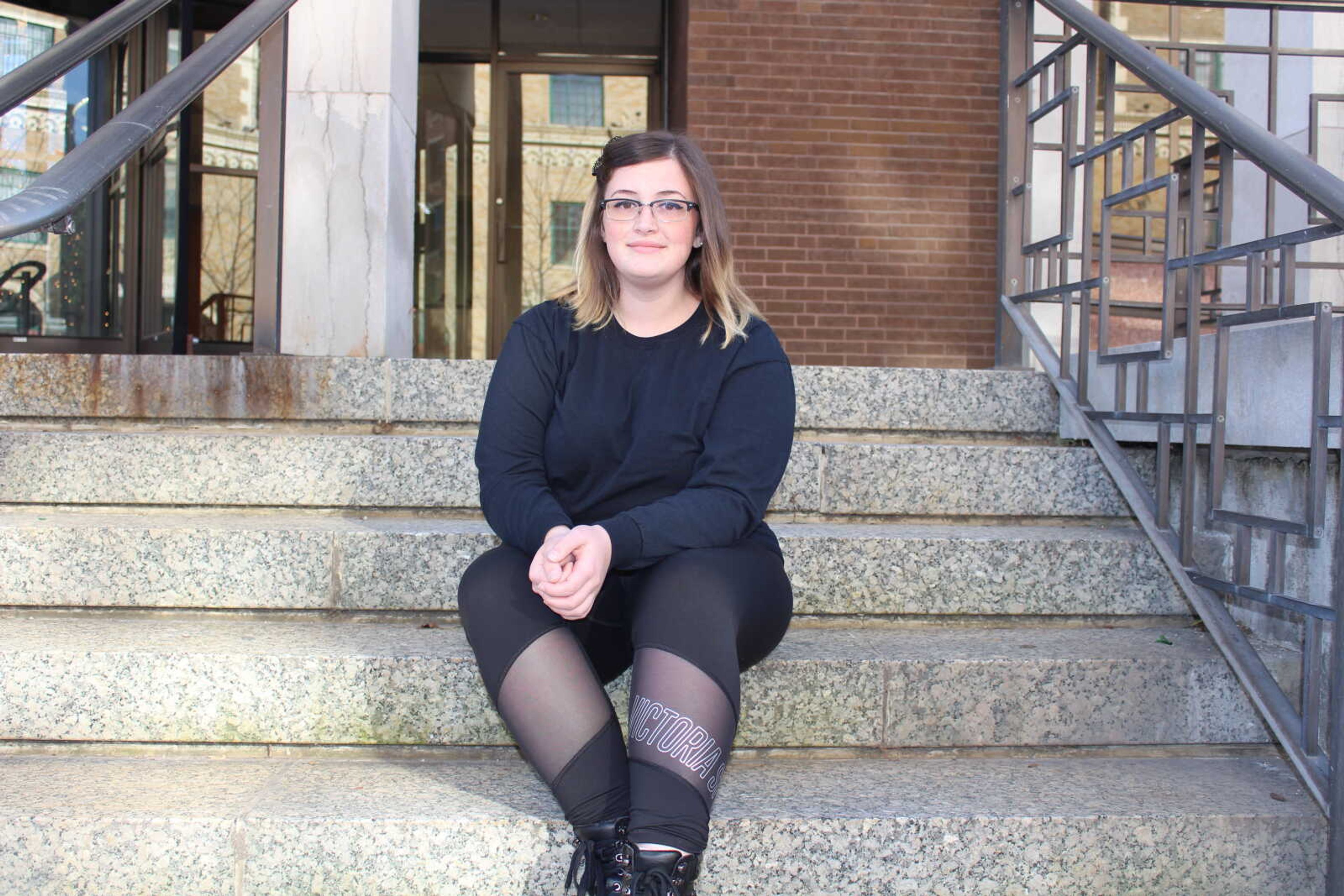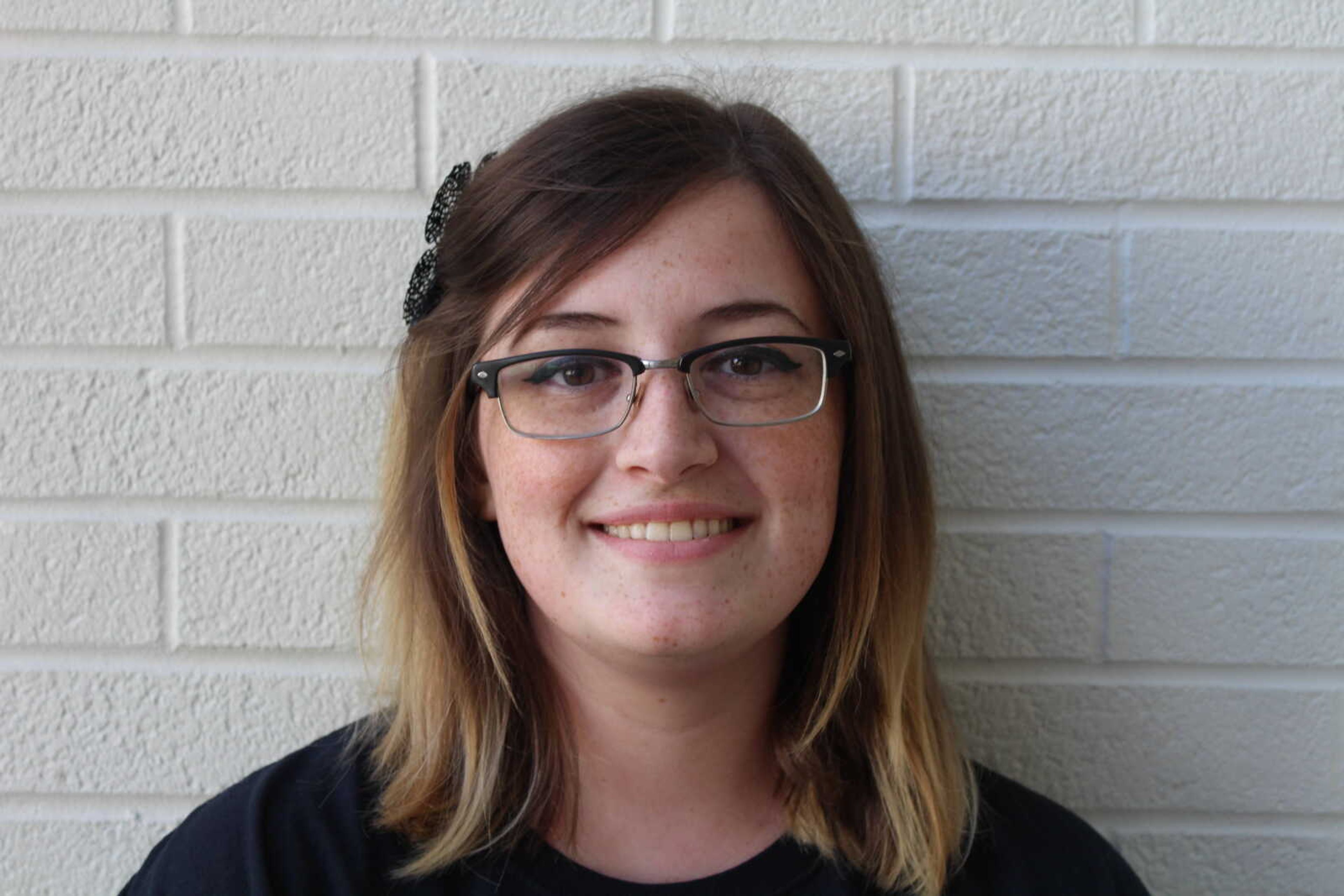To be heard: Southeast senior works to have influential voice
At 16 months old, MaryJo Blunk lost her hearing. “I don’t remember a time when I was able to hear,” she said. Blunk comes from a hereditarily deaf family (meaning her mother is also deaf), and she describes herself as part of the deaf culture. “There are two types of deaf,” Blunk said. “The ‘little d’ deaf is a diagnosis, the ‘capital D’ Deaf would be the culture. I am both diagnostically deaf, and I have a deaf family.”...
At 16 months old, MaryJo Blunk lost her hearing.
“I don’t remember a time when I was able to hear,” she said.
Blunk comes from a hereditarily deaf family (meaning her mother is also deaf), and she describes herself as part of the deaf culture.
“There are two types of deaf,” Blunk said. “The ‘little d’ deaf is a diagnosis, the ‘capital D’ Deaf would be the culture. I am both diagnostically deaf, and I have a deaf family.”
Now a senior at Southeast and majoring in English literature, Blunk said she has had plenty of struggles and triumphs.
“I tend to have a difficult time understanding people when we’re in large groups, which makes it kind of hard to go out to places with a full group of my friends because I usually end up being the quiet one,” she said. “It’s also made it hard in classroom discussions.”
Her experience at Southeast has been a bit rocky, especially when dealing with insensitivities, some of which, she said, can come from professionals.
“I had one teacher — the gist of what she asked me was, ‘Do you want me to dumb down the words so that you can understand what I’m talking about?’” she said. “I was thinking, ‘How dare you?’ To question my intelligence so blatantly — that hurt.”
One of the biggest struggles she has come across is accessibility in on-campus housing.
Blunk has lived on campus four years, and she has had difficulty knowing when alarms are going off in her dorm. She said this is because she normally removes her hearing aids in her room, but the lack of flashing-light fire alarms has caused her to be left behind during false alarms and drills.
“Should something happen, I want to know that I’m going to be safe,” she said.
Additionally, Blunk said she has had communication issues when trying to place an order in campus dining halls and occasionally when trying to perform other tasks.
She said Counseling and Disability Services does a good job, but there is always room for improvement.
One thing she would like to see is an increased awareness of accommodation procedures for faculty. Blunk currently has preferential seating and an interpreter for classes, but she said most faculty members have never had experience with this accommodation.
Blunk said she wants to stress the fact that her ability to live daily life is not impeded. She said she is able to complete normal tasks just as effectively as anyone else, even though she sometimes has to deal with inconsiderate actions from those who don’t know much about disabilities.

“I find that people feel they’re entitled to my life, my story,” she said. “Become my friend, get to know me, and then you can ask [personal] questions.”
Blunk said it’s important for everyone to have platform, especially those with special needs, citing the struggles she has faced in being heard.
“People aren’t listening. People with disabilities have been outspoken; we’ve been trying to get accommodation, we’ve been trying to get our needs met,” she said. “People with disabilities are often shoved to the side when we should be up there in the front with everybody else. When you list all the ‘isms’ out there, you think of racism, sexism, homophobia — you don’t think of ableism.”
Though these things can pose challenges, Blunk said she wouldn’t change her circumstances because of the fullness they have provided her in life.
“I always have to advocate for myself and say, ‘Hey, this is what I need.’” she said. “But I feel like in some ways, while it can be frustrating, while people have been very insensitive, I do find that it has enriched my life and has made me stronger.”




